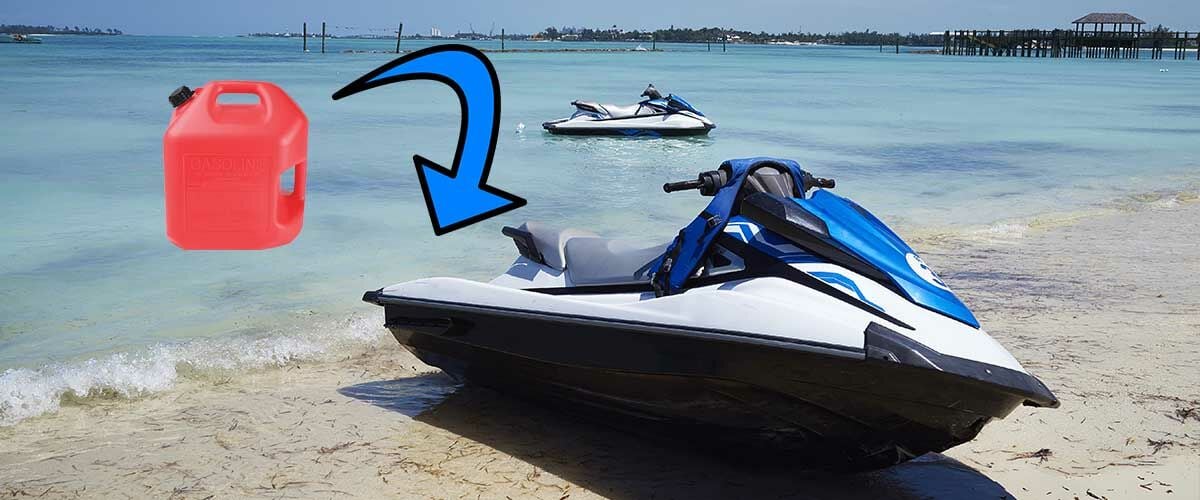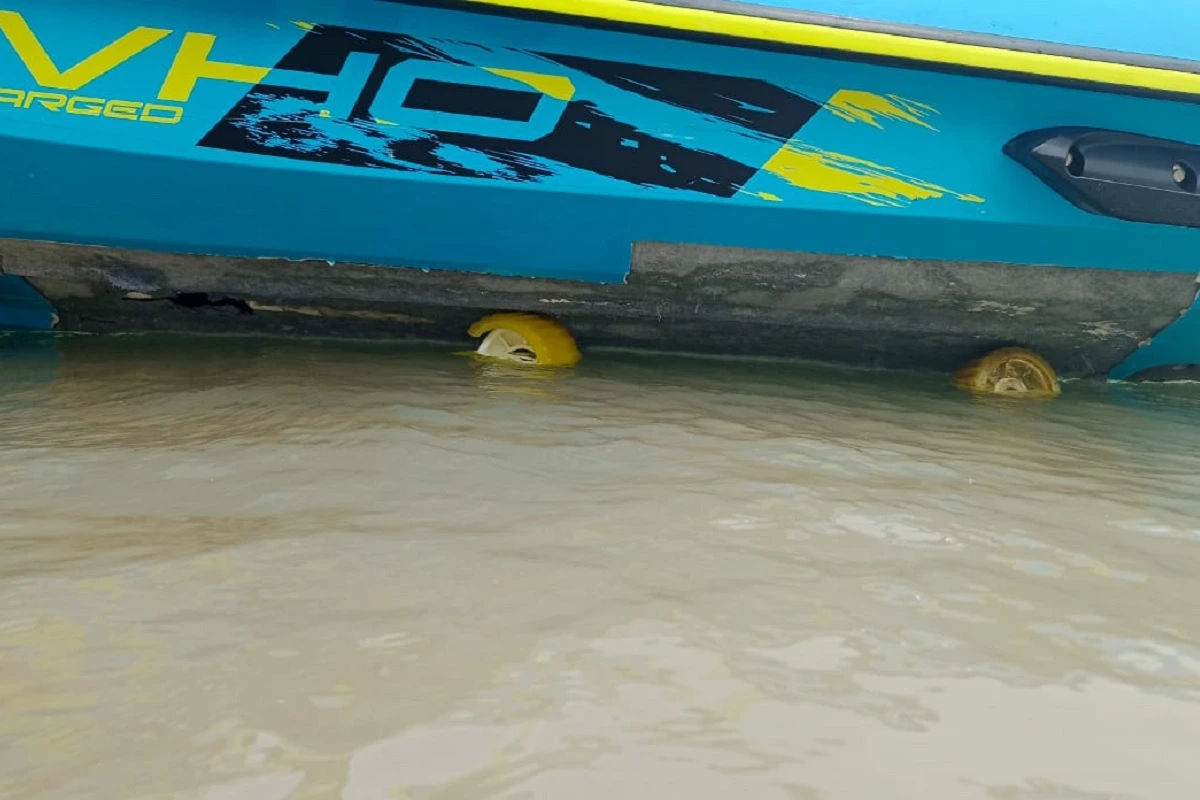Jet ski scams in Thailand to be aware of

Imagine returning your rented jet ski, only to be confronted with claims of damage you didn’t cause. Scammers may even rent out faulty vehicles, leading to accidents and further demands for compensation. The situation’s made worse by the jet ski scam when you’re forced to purchase unnecessary insurance or extras, inflating costs significantly.
Knowing the risks and being prepared can save you from falling victim to these scams. It’s better to be aware so you can enjoy the beaches in Thailand without unnecessary stress.
Common tactics used by scammers
| Scam Type | Overview |
|---|---|
| Losing balance while riding | Tourists are stranded after a jet ski overturned, falsely accused of damage, and pressured into paying. On one occasion, someone ended up paying 31,000 Thai baht. |
| Running out of fuel | Operators provide jet skis with insufficient fuel, leaving tourists stranded and charging high fees for fuel rescue. |
| Dents and scratches | Operators claim new damages upon return, demanding inflated repair fees for pre-existing issues. |
| Insurance scam | Tourists are pressured into unnecessary insurance and face inflated charges for damages and fuel upon return. |
1. Losing balance while riding Scam

In one real experience from this Reddit post by couldiwouldishouldi, after just 7-8 minutes of riding, him and another person decided to turn around and head back. While making a gentle turn, the jet ski lost balance and overturned. For 15 minutes, they were left in the sea holding onto the jet ski until someone came to help. Once back onshore, the operator claimed they had damaged the jet ski and demanded an outrageous 85,000 Thai baht. Despite the jet ski being insured and seemingly fine, they were pressured into accepting responsibility.
Local police were called in, but it turned out they were related to the jet ski owner, making it clear that this was all part of the scam. Attempts to contact the embassy and tourist police were fruitless, as they simply advised paying up. After hours of negotiation and a visit to the police station, the tourists eventually paid 31,000 Thai baht, far less than the original demand, but still a significant and unfair amount. This ordeal lasted from 5.15pm until 11.30pm and left them both frustrated and exhausted.
The lesson here is to only rent from reputable sources, even if it costs a bit more. Avoid renting from unlicensed family-run operations on the beach to protect yourself from such scams. Remember, it’s better to pay a little extra.
2. Running out of fuel Scam

One common trick that unscrupulous operators use involves intentionally providing a nearly empty fuel tank while keeping the gauge of the jet ski looking full. You head out across the beautiful blue waters, the wind in your hair and the excitement of adventure coursing through you. However, without warning, the jet ski comes to a sputtering halt because it has run out of fuel. It turns out the operator deliberately rented it to you with just enough fuel to get you far away from the shore but not enough to return safely.
In such a situation, you might feel anxious and stranded, with no option but to call for help. That’s when the operator comes to your ‘rescue’—at a significant cost. They conveniently arrive with extra fuel, ready to bring you back to shore, but they charge you an exorbitant fee for this service. Worse, since you’re stuck out at sea, you don’t have much of a choice but to pay the price they demand. This scam is a clever setup designed to catch you off guard and force you into spending more money than expected.
To avoid being a victim of the jet ski fuel scam, it’s essential to take a few precautions. Before setting off, always check the fuel gauge, and make sure the tank is full or ask the operator explicitly about fuel levels. If anything, better to go to more reputable Jet Ski operators either by asking around or checking reviews because it is pretty difficult to confront or confirm if the tank is full. Extra cost but is less scammy.
3. Dents and scratches scam

Imagine returning the jet ski after a thrilling time on the water, only to have the operator claim that you’ve caused damage. Even if you were cautious and the jet ski appears to be in perfect condition, they may insist on visible scratches, dents, or other issues. This is a common tactic used by scammers to exploit unsuspecting tourists.
These operators often demand a high fee for supposed repairs, putting you in a difficult position. They count on the fact that you may be unfamiliar with local laws and they bring on a police officer who is usually involved in their scam. With that, you will find that you are pressured into paying them off to avoid what could be severe legal troubles.
To avoid falling into this trap, always inspect the jet ski thoroughly before taking it out on the water. Take clear photos or videos of the entire jet ski, especially any existing scratches or damage, and make sure the operator acknowledges them before you set off. Stick to reputable rental companies that are well-reviewed by other tourists and have a good track record. If a disagreement arises, remain calm and insist on involving a neutral authority if necessary.
4. Insurance scam

The vendor seems friendly and offers you an attractive price, and you can’t wait to feel the wind rush through your hair. But that’s exactly when the real scam begins. Once you agree to rent the jet ski, you are pressured into purchasing unnecessary insurance. The vendor insists this insurance is mandatory for foreigners, with vague threats that if you refuse, you could end up paying a hefty fine if anything goes wrong. The pressure builds up, and with no prior experience, it seems like a reasonable thing to do.
You may think that’s the end of it, but the tricks don’t stop there. After your fun ride, you return the jet ski only to be hit with unexpected additional charges. You are accused of damages that supposedly happened during your rental. These so-called damages might be a small scratch you never noticed, or something cleverly concealed beforehand. To avoid conflict or even threats, many people reluctantly pay inflated repair fees. But that’s not all—there’s a catch with fuel charges as well. Despite filling up the jet ski as much as you were instructed, the vendor might claim the tank is not at the required level, adding an inflated fuel surcharge to your bill.
The jet ski scam is cleverly set up to take advantage of tourists’ lack of knowledge and the reluctance to argue in a foreign country. You end up paying much more than you initially expected and in between the inflated insurance, fabricated damages, and surprise fuel fees, a simple, carefree experience can quickly turn into an expensive ordeal.
Some prevention tips
When looking to ride a jet ski in Thailand, you need to take more precautions. You are outnumbered and most of the time everyone you meet is usually involved with each other. Here are some tips for prevention:
- Check customer reviews: Before renting, research online reviews of the rental operator. Look for patterns indicating previous scams, such as complaints about unfair charges or damage claims. This can help you gauge the company’s reputation and make an informed decision, ensuring a safer rental experience.
- Rent from reputable operators: Choose well-reviewed and established rental companies to minimise risks. Avoid street vendors or unknown operators, as they are more likely to engage in scams. Using hotel recommendations or online booking platforms can lead you to trustworthy services.
- Inspect the Jet Ski thoroughly: Always inspect the jet ski for any visible damage before use. Document existing issues with photos or videos to protect yourself against false claims of damage upon return. A thorough inspection can deter fraudulent operators who may try to charge you for pre-existing damages.
- Document rental terms: Agree on rental terms in writing before you proceed. This includes prices for rentals and fuel, as well as duration of use. Having a clear agreement helps prevent misunderstandings and inflated charges when returning the jet ski. Either have the documentation in writing and scan them too for an extra failsafe.
- Try to avoid giving away your passport/ID: It is necessary to give your passport or some form of ID for registration and liability purposes. However, what you can do is to give a copy instead so they can not hold you hostage. Especially if it’s a shadier place with less legal oversight, the last thing you want to do if hand them something as important as your passport and then they withhold it from you.
Stay informed and take caution! You can enjoy the stunning beaches without falling victim to these scams by choosing reputable rental operators, carefully documenting the condition of the jet ski, and understanding your rights. Engaging with local tourist authorities such as the Tourist Police (Phone no. 1155) can also offer support if you encounter any issues. Keep in mind though that it may not bear fruit so the only person who can save you is yourself and your wits.
Have you heard of or experienced a jet ski scam in Thailand?
Frequently asked questions
Are there any legal protections for tourists against these scams?
While there are legal protections in place, enforcement can be inconsistent. It is advisable for tourists to document their experiences and report scams to local authorities or tourism boards when they occur. One law enforcment organisation you can contact is the Tourism Police (Phone no. 1155) as well for law enforcement that will support you better than the local police or police in with the scam.
Is it safe to ride a jet ski in Thailand despite the scams?
While riding a jet ski can be safe, it is essential to be cautious about whom you rent from and to follow safety guidelines. Always wear a life jacket and be aware of your surroundings
What should I do if I feel threatened by a jet ski rental operator?
If you feel threatened, pioritise your own safety first. Altough it may not feel like it, you are not constrained to the area and are not obligated to the scammer so you can call the Tourism Police, friend, or anybody to get you out of the hairy situation. If all fails and you have to pay them anyways, take not and avoid them entirely. Make sure to let your friends, families, and interested people know too about the scam.
Can I rent a jet ski through my hotel or an online booking service to avoid scams?
Yes, booking through reputable hotels or established online platforms can significantly reduce the risk of falling victim to scams, as these entities typically partner with trustworthy rental services.
What are some signs that a jet ski rental company might be a scam?
Signs include aggressive sales tactics, lack of proper documentation or licenses, refusal to allow you to inspect the jet ski, and operators who seem overly anxious about potential damages.
Are there specific locations in Thailand where jet ski scams are more prevalent?
Yes, jet ski scams are particularly common in tourist hotspots like Pattaya and Phuket. These areas have a history of complaints regarding extortionate practices by rental operators.
What should I do if I am accused of damaging a rented jet ski?
If accused, remain calm and document everything. Take photos of the jet ski upon return, and if necessary, involve local authorities to mediate the situation. Do not pay any demands without proof of damage
Latest Thailand News
Follow The Thaiger on Google News:


























